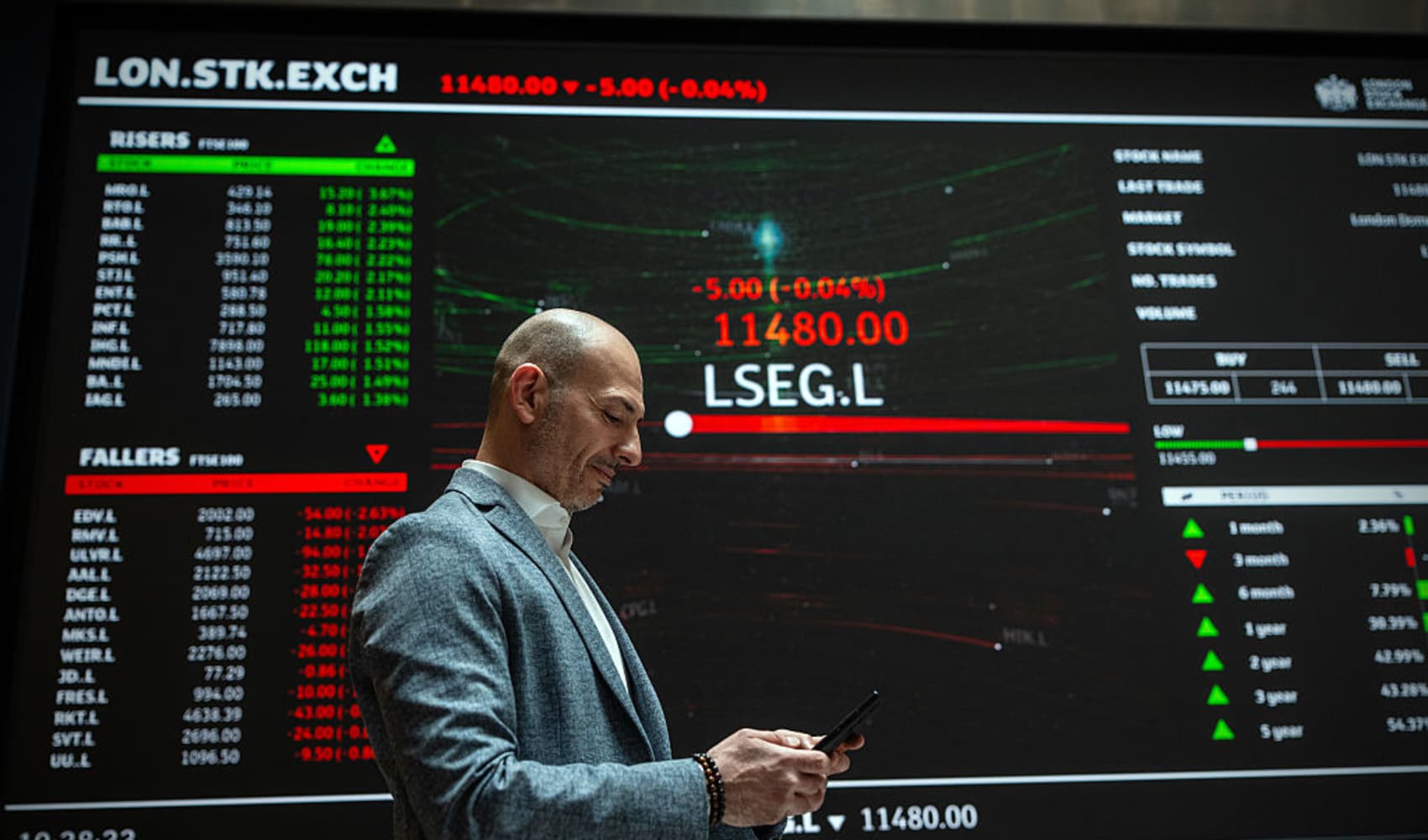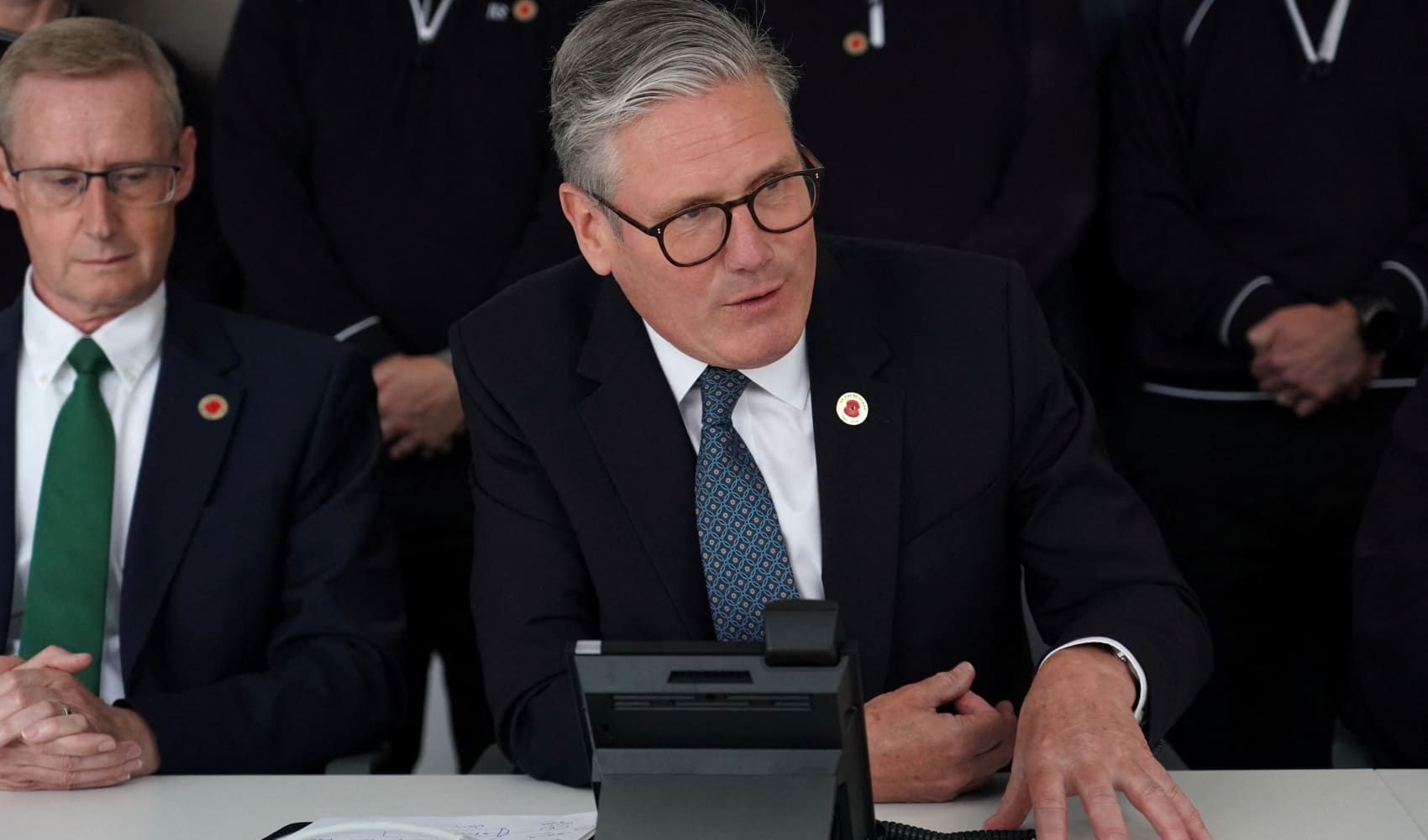FTSE 100's Record Streak: Will the Rally Last?
FTSE 100's Record-Breaking Streak: Will the Rally Continue?
Introduction: A Bull Run in the UK Market?
Hold on to your hats, folks! The London Stock Exchange has been on a roll, and we're not just talking about a gentle stroll. The FTSE 100, the UK's leading stock index, has shattered records with its longest-ever winning streak. But is this just a fleeting moment of glory, or is there more fuel in the tank for further gains? Let's dive into the details and see what market watchers are saying.
FTSE 100's Historic Ascent
The numbers don't lie. The FTSE 100 surged more than 1% on a recent Friday, capping off an impressive run that had market analysts buzzing. It wasn't just another day at the office; it was a historic moment.
Fifteen Days of Triumph
The index achieved fifteen consecutive sessions of gains. This milestone surpassed the previous record of fourteen consecutive days set back in 2017. It's like watching a marathon runner break the tape after years of training – a truly remarkable achievement.
Outperforming Expectations
Analysts at CNBC reported that, based on their conversations with market watchers, there's a belief that the FTSE 100 could potentially continue its upward trajectory. It's not just a hope; it's a cautiously optimistic outlook based on underlying market factors.
Navigating Global Market Turbulence
While the rest of the world has been grappling with economic uncertainty, especially concerning tariff policies, the UK stock market has been enjoying a considerable rally. So, what's the secret sauce?
Ignoring the Noise
It's like the FTSE 100 has noise-cancelling headphones on, tuning out the external chaos and focusing on its own path. This resilience is a key factor in its recent success.
Year-to-Date Performance
Since the beginning of the year, the FTSE 100 has gained more than 5%. That's a significant increase that reflects investor confidence and positive market sentiment. It's a testament to the underlying strength of the UK economy, despite prevailing global uncertainties.
Breaking Down the Numbers: A Closer Look
Let's crunch some numbers to understand the magnitude of this achievement. The 1.25% rise on that fateful Friday was the cherry on top of a fifteen-day winning streak. But what contributed to this performance?
Sector Performance
Which sectors led the charge? Were financials, energy, or consumer goods the driving forces behind the rally? Understanding sector-specific contributions can give us a clearer picture of the market's health.
Individual Stock Performances
Which individual stocks outperformed the average? Examining individual stock movements can reveal the underlying stories of specific companies and their impact on the overall index performance. Were there any major announcements that drove individual stock prices higher?
Factors Driving the FTSE 100 Rally
Why is the FTSE 100 performing so well? There are several factors at play.
Brexit Impact (or Lack Thereof)
Despite the ongoing Brexit saga, the UK economy has shown surprising resilience. Has the uncertainty surrounding Brexit already been priced into the market, or is there something else at play? It might be that the UK is learning to live with the new normal.
Global Economic Conditions
While the FTSE 100 seems to be defying global headwinds, it's not entirely immune. Are there specific global factors that are indirectly benefiting the UK market, such as favorable currency exchange rates or increased demand for UK exports?
Interest Rate Policies
The Bank of England's interest rate policies also play a crucial role. Are interest rates likely to remain stable, or are there potential changes on the horizon that could impact the FTSE 100's performance?
Potential Hurdles and Challenges
Of course, no bull run lasts forever. What are the potential obstacles that could derail the FTSE 100's winning streak?
Geopolitical Risks
Geopolitical tensions, such as trade wars or political instability in key regions, could negatively impact global markets, including the FTSE 100.
Inflation Concerns
Rising inflation could force central banks to raise interest rates, which could dampen economic growth and negatively impact stock prices. Keeping a close eye on inflation data is crucial for investors.
Economic Slowdown
A global economic slowdown could reduce demand for goods and services, impacting corporate earnings and potentially leading to a market correction.
Strategies for Investors: Riding the Wave
So, how can investors capitalize on this rally while mitigating potential risks? Here are a few strategies to consider.
Diversification
Diversifying your portfolio across different sectors and asset classes is always a good idea. Don't put all your eggs in one basket! By spreading your investments, you can reduce the impact of any single investment performing poorly.
Long-Term Perspective
Investing is a marathon, not a sprint. Focusing on long-term growth and avoiding knee-jerk reactions to short-term market fluctuations is crucial for success. Remember, patience is a virtue.
Professional Advice
Seeking advice from a qualified financial advisor can help you make informed investment decisions based on your individual circumstances and risk tolerance. It's always a good idea to consult with an expert.
The Future Outlook: Is the Bull Run Sustainable?
The million-dollar question: can the FTSE 100's winning streak continue? While no one can predict the future with certainty, here are some factors to consider.
Earnings Season
Upcoming earnings reports will provide valuable insights into the financial health of UK companies. Strong earnings growth could fuel further gains, while weak earnings could trigger a correction.
Economic Data
Key economic indicators, such as GDP growth, unemployment rates, and inflation data, will provide clues about the overall health of the UK economy and its impact on the FTSE 100.
Global Events
Keep an eye on global events, such as trade negotiations and political developments, as they can have a significant impact on market sentiment and investor confidence. Staying informed is key to making smart investment decisions.
Conclusion: A Moment of Optimism
The FTSE 100's record-breaking winning streak is a welcome sign of strength in the UK market. While challenges and uncertainties remain, the underlying factors supporting this rally suggest there may be more upside potential. Investors should remain cautious but optimistic, focusing on long-term strategies and seeking professional advice when needed. The fifteen-day winning streak signifies economic resilience and the potential for continued growth in the UK market. It showcases a market that can, at times, buck global trends and set its own course.
Frequently Asked Questions
- What exactly is the FTSE 100 index?
The FTSE 100 is an index representing the 100 largest companies listed on the London Stock Exchange, weighted by market capitalization. It's a key indicator of the UK stock market's performance.
- Why is the FTSE 100 significant for investors?
It provides a snapshot of the UK's leading companies, offering insights into the overall health and direction of the British economy. It's also used as a benchmark for investment funds.
- What are some factors that could stop the FTSE 100's rally?
Geopolitical risks, rising inflation, unexpected economic slowdown, and changes in central bank policies could all potentially halt the upward trend.
- How can I invest in the FTSE 100?
You can invest through various means, including buying shares in individual companies listed on the FTSE 100, investing in index funds that track the FTSE 100, or using exchange-traded funds (ETFs).
- Is now a good time to invest in the FTSE 100?
That depends on your individual financial situation, risk tolerance, and investment goals. Consult with a financial advisor to determine if investing in the FTSE 100 aligns with your needs. Remember that past performance is not indicative of future results.

